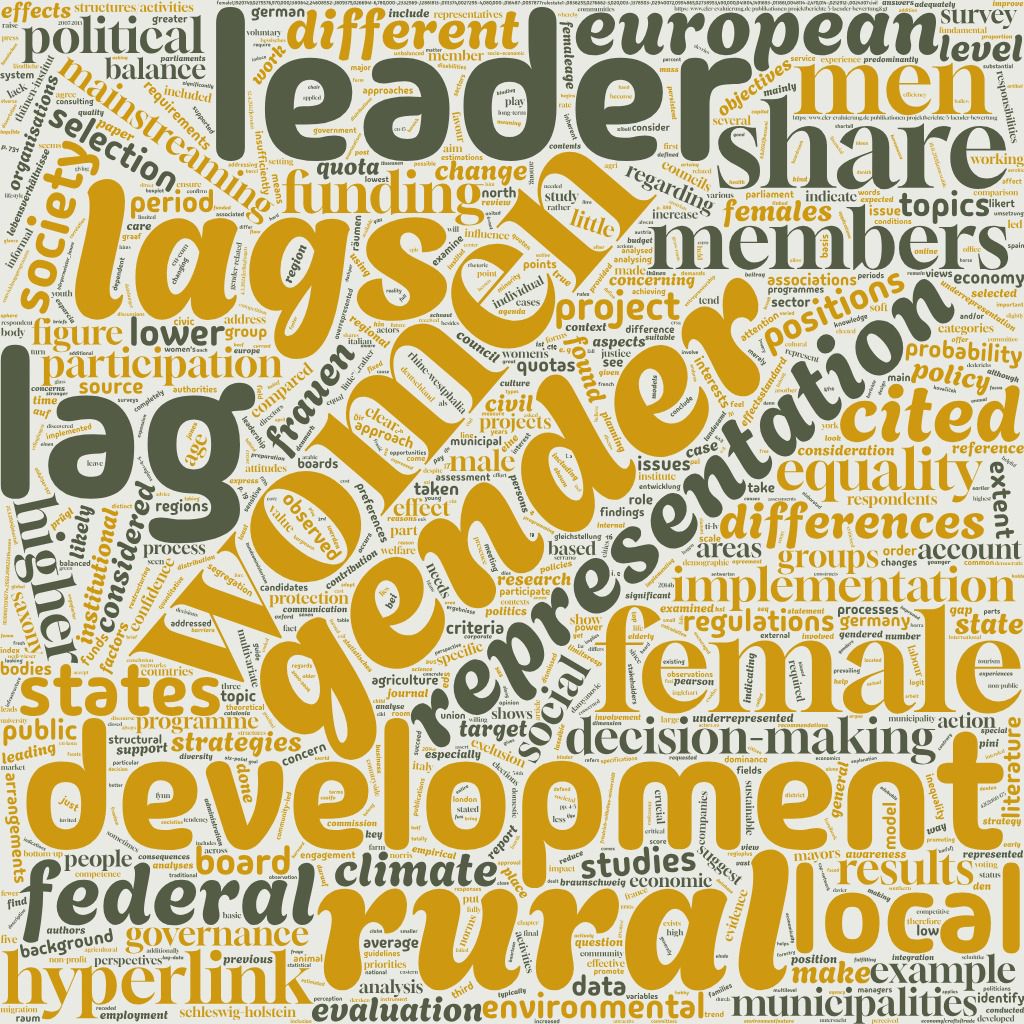Gender mainstreaming is a central obligation for EU-funded programmes, which has so far been insufficiently implemented. This also applies to LEADER, a participatory approach in which local action groups (LAGs) decide on project funding in rural regions. However, women are still underrepresented in the decision-making bodies of LAGs.
The authors analyse the participation of women and the factors influencing this as part of the evaluation of rural development programmes. They base this on results from four federal states in the 2014-2022 and 2007-2013 funding periods. Both the development of the proportion of women in the decision-making bodies and differences in the perception of processes by men and women are examined. The authors also discuss how different frameworks set by the funding programmes of the federal states influence these factors.
The empirical findings show clear differences in the social preferences of men and women. For example, from the perspective of female LAG members, issues such as agriculture and climate protection are often insufficiently considered in the implementation of the local development strategies. The same applies to the concerns of women and other groups of people such as senior citizens. In addition, women also place higher demands on gender equality in project implementation than men.
The results suggest that, also in bottom-up processes such as LEADER, the participation of women should be reinforced through top-down regulations (e.g. quotas). However, a gender quota alone is not enough to anchor gender equality in LEADER implementation. In addition, there is a need to enhance knowledge and awareness of gender-specific aspects in rural development among local actors and in the responsible ministries. Potential starting points for this are the provision of appropriate advanced training opportunities, the integration of the topic in LEADER events and the elaboration of practice-oriented guidelines for projects.
Reference: Raue P, Fynn L-L, Pollermann K (2024) The role of women in Leader: Developments in Germany over time and implications. European Countryside 16(4):589-614
Contact: Petra Raue

![[Translate to English:] [Translate to English:]](/media/_processed_/2/0/csm_LV_Bei_Hornburg_Quelle_Johanna_Fick_neu_da89674833.jpg)
![[Translate to English:] [Translate to English:]](/media/_processed_/2/0/csm_LV_Bei_Hornburg_Quelle_Johanna_Fick_neu_3aae309567.jpg)





